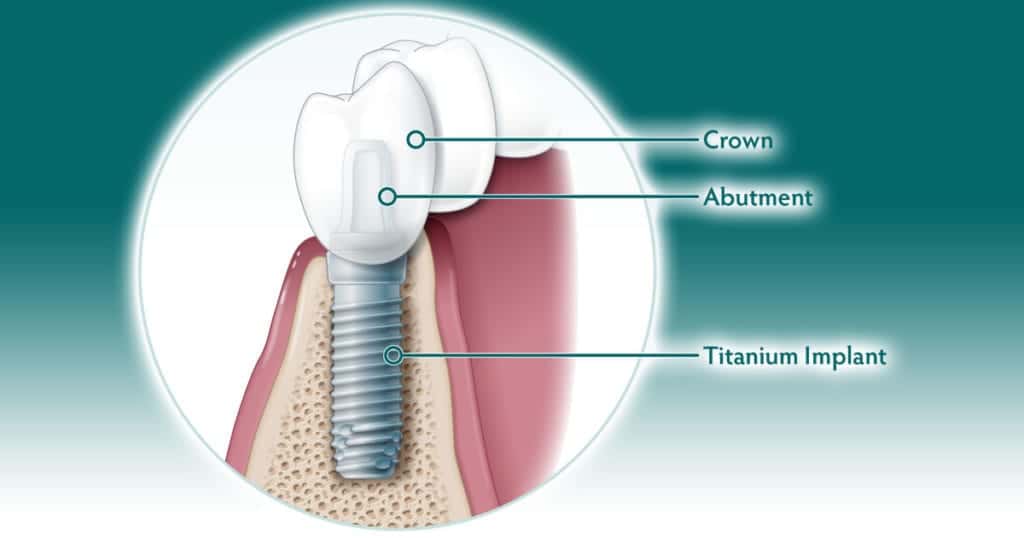How Do Dental Implants Work?
Dental implant surgery, performed by an oral and maxillofacial surgeon (OMS), is the most permanent solution available for missing teeth as the implants integrate directly with a patient’s jawbone. Missing teeth are more than just a cosmetic issue; they affect how a person breathes, eats and drinks.
What Are Dental Implants?
Depending on a patient’s needs, a single implant generally replaces one missing tooth. Two or more implants can serve as a stable support for the replacement of multiple teeth.
A single dental implant restoration is composed of three parts:
- A titanium implant that fuses to the jawbone through a process called osseointegration. It replaces the root of a tooth.
- An abutment, which is the portion of the implant that rises above the gum line.
- A crown fitted on top of the abutment to give the appearance and function of a natural tooth.

After the implant is placed by an OMS, it takes time for it to fuse with the jaw. Once the implant is stabilized, a restorative dentist takes an impression to make the crown or other implant supported restoration.
Some implants may be eligible for immediate provisionalization or loading:
- Immediate Provisionalization – When the missing tooth is in a very visible area, a temporary crown may be placed at the time of surgery. This crown is for appearance purposes only and should not be used for chewing or biting.
- Immediate Loading – Patients with adequate bone to support the implant may be eligible for immediate loading, which is the placement of temporary or permanent crowns at the time of surgery or very soon afterward. This allows for a patient to return to a more normal diet sooner.
Full osseointegration can take up to a few months but once complete, the dental implant will be as sturdy as the original tooth. Dental implants do not slip or make noises the way dentures can, nor do they require replacement the way a dental bridge might.
Some patients may be concerned about the cost of dental implants, but it is important to recognize the value of a potentially lifelong replacement for lost teeth.
Consult an OMS to Learn More About Dental Implants
The longevity and esthetics of dental implants are why so many people choose implants as their permanent solution to missing teeth. Consult an OMS or obtain an OMS referral to see if you are a candidate for dental implants.

